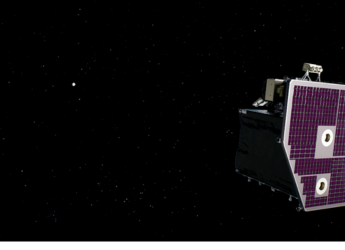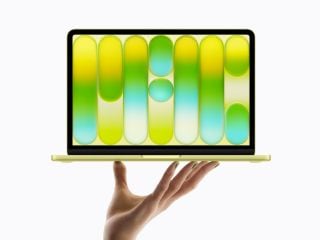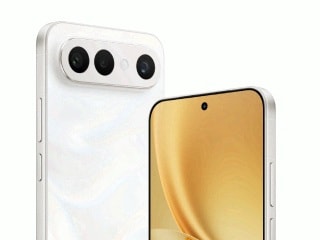- Home
- Apps
- Apps Features
- This App Wants to Remove the Biggest Pain Point of Buying Clothes Online
This App Wants to Remove the Biggest Pain Point of Buying Clothes Online

New Jersey-based Mirrorsize has a small team of 12 employees
Even though the rising popularity of e-commerce has brought a host of online fashion stores to your fingertips, a large number of people still prefer purchasing clothes offline. The one key factor that is still stopping customers from purchasing apparel online and affecting profit margins of online stores is the difficulty in finding clothes that fit them perfectly. US-based entrepreneur Arup Chakraborty wants to resolve this problem with his venture called Mirrorsize.
Established in June 2017, Mirrorsize was able to file a patent on its proprietary body measurement technology in December last year. The New Jersey-based company, which has an R&D facility in New Delhi, uses a mix of computer vision, deep learning, along with 3D, mesh processing. This combination is touted to deliver precise body measurement in a device-agnostic way — directly using regular smartphones without any special cameras — to eventually help customers easily find clothes that are of the right size.
India-born Chakraborty started Mirrorsize after trying to shop for a shirt online in the US and finding out that none fit him properly. After returning the order multiple times over almost two months, he finally decided to drive down to an offline store to get himself measured by a tailor in person.
"The problem statement what I came [out with] was that how to get a precise body measurement, and by not investing anything — [using] some product, which is device agnostic, user friendly, and there is no investment required," recalls 51-year-old Chakraborty, founder and CEO of Mirrorsize, while speaking with Gadgets 360 at the company's New Delhi facility.
According to a report by Morgan Stanley, 3D body-scanning apps could help bring a decisive shift in the global apparel market and ultimately push customers to move from offline stores to online portals. Mirrorsize is one of the latest companies in that nascent space. And the company says it uses a unique 3D mesh to deliver accurate measurements.
"We create a 3D model of the object on the run and then we deform the 3D mesh to take the shape of the object and then we take the measurement," explains Chakraborty.
Mirrorsize has two solutions that it offers at the moment. There is Size2Fit that specifically designed for bespoke merchants to let them receive body measurement from customers to fulfil their orders online, without requiring any manual involvement of a tailor or asking the customers to visit an brick-and-mortar store to give their measurements. The second product that the company offers is Size2Fit that is designed for brands and stores selling apparels online.
![]()
Arup Chakraborty, founder and CEO, Mirrorsize
Chakraborty tells Gadgets 360 that the secret sauce behind both the existing products is the 3D body mesh technology. This helps get measurements such as the chest girth, stomach girth, and the waist girth.
"We initially failed," reveals Chakraborty. "We tried various things from the B Spline curve to Nerve curve to statistical modelling, like all my competitors have done... And then, we took the hardest way to go on, which is creating a 3D model on the run to work on the body mesh."
Apart from using the mesh, Mirrorsize has adopted the concept of segmentation to remove background noises. The company has also trained its deep learning model to identify human bone joints.
"Because out of everything, the human bone joints are relatively consistent — whether you go in different geographies, from the Caucasian to Spanish to Asian to South Asian and all," says Chakraborty. "So we trained on a deep learning model to perfect the human bone joints to get the key feature point extraction."
Using its existing technologies, Mirrorsize is also working on a new product called Draping. "Since we create a 3D model of the object," says Chakraborty, "So based on customer's choice of fabric, the design, the colour, the quality of the texture, we can sew that apparel within seconds and drap the person to show a real-life visualisation to enhance personalisation."
![]()
Mirrorsize is working on a product called Draping to show real-time visualisation
Brands that have mobile apps can integrate the products designed by Mirrorsize simply using its SDK, whereas online stores can take the API to integrate the solution.
"No investment is required — neither from the customer point of view or from merchant, except the merchant has to pay a licence fee to us," says Chakraborty.
End users can take the experience by downloading the standalone Mirrorsize app on their Android and iOS devices. The company also claims to provide accurate results irrespective of the megapixel count or camera quality of the smartphone.
The app asks users to select whether they're wearing regular fit or tight fit clothes and then gives a screen to enter parameters such as height, weight, and gender. After getting the details, the app asks users to place the device vertically straight at a 90-degree angle and then step back eight to 10 feet away from the screen to capture their front and side view. This whole process enables the app to generate measurements.
![]()
Mirrorsize app works with regular and tight fit clothes
Mirrorsize has a small team of 12 employees, but Chakraborty is also taking guidance from IIT professors. During his initial research, he also visited various other institutes and met even with experts from ISRO. He ended up after roping a couple of IIT Delhi professors, namely Subhasis Banerjee and Sudipto Mukherjee.
"Sometimes you get concepts which you can write up directly as theory and you can publish papers," Professor Sudipto Mukherjee tells Gadgets 360. "In this case, we will be writing up papers because the accuracy that we've got is exceptional. It will turn out somewhere as a journal paper or maybe somebody put it into a book someday."
![]()
Professor Sudipto Mukherjee of IIT Delhi works with the Mirrorsize team
3D body measurement apps started growing with the arrival of new smartphone technologies, such as large and multiple camera sensors and high-performance, multi-core processors. Just like Mirrorsize, apps such as MTailor and TailorGuide are also providing ways to measure body through mobile devices. But nevertheless, Chakraborty acclaims Mirrorsize stands very clear distant apart from all of the competitors.
"We give the body measurement within [a] couple of seconds," claims Chakraborty. "In this bucket, there are only a handful of players. But we are absolutely different."
MTailor, which closely competes against Mirrorsize, provides users with the ability to measure their body elements after recording a video. However, once it records the video, the MTailor app doesn't provide explicit measurements to the end user. The app, instead, brings a screen to apparel, such as a shirt or a trouser, based on the measurement metric.
In contrast, TailorGuide does give measurements to the users after capturing their images, but it requires manual adjustments to determine the data accurately.
Professor Mukherjee of IIT Delhi foresees that the present technological structure of Mirrorsize is capable of being the backbone of automatic templating. This would give machines the ability to stitch clothes after receiving data from the computer, without requiring tailors.
Currently, Mirrorsize has signed two US companies, namely Ripley Shirts and Blaze-In. There are also plans to onboard more brands in the coming days. Chakraborty reveals the company is also partnering with online merchants such as Corpqlo, GetStitched, and Ira Soleil.
"We already have contracts with the major brands in India,” he asserts. "We just got acquisition offer also which we turned down. My belief is we will ramp up very fast, and we will break-even in just [a] couple of months. We're taking with small-size brands, the mid, and the big ones also.”
As per an estimate by Statista, return deliveries in the US will cost $550 billion (roughly Rs. 38,42,950 crores) in the year 2020. Return deliveries are also affecting the bottomline of major online stores in India and other developing markets.
Chakraborty believes that with the growth of Mirrorsize, online fashion portals and apparel stores will be able to bring down their returns.
For details of the latest launches and news from Samsung, Xiaomi, Realme, OnePlus, Oppo and other companies at the Mobile World Congress in Barcelona, visit our MWC 2026 hub.
- Samsung Galaxy Unpacked 2026
- iPhone 17 Pro Max
- ChatGPT
- iOS 26
- Laptop Under 50000
- Smartwatch Under 10000
- Apple Vision Pro
- Oneplus 12
- OnePlus Nord CE 3 Lite 5G
- iPhone 13
- Xiaomi 14 Pro
- Oppo Find N3
- Tecno Spark Go (2023)
- Realme V30
- Best Phones Under 25000
- Samsung Galaxy S24 Series
- Cryptocurrency
- iQoo 12
- Samsung Galaxy S24 Ultra
- Giottus
- Samsung Galaxy Z Flip 5
- Apple 'Scary Fast'
- Housefull 5
- GoPro Hero 12 Black Review
- Invincible Season 2
- JioGlass
- HD Ready TV
- Latest Mobile Phones
- Compare Phones
- Vivo X300 FE
- Tecno Pop X
- Apple iPhone 17e
- AI+ Pulse 2
- Motorola Razr Fold
- Honor Magic V6
- Leica Leitzphone
- Samsung Galaxy S26+
- MacBook Neo
- MacBook Pro 16-Inch (M5 Max, 2026)
- Tecno Megapad 2
- Apple iPad Air 13-Inch (2026) Wi-Fi + Cellular
- Tecno Watch GT 1S
- Huawei Watch GT Runner 2
- Xiaomi QLED TV X Pro 75
- Haier H5E Series
- Asus ROG Ally
- Nintendo Switch Lite
- Haier 1.6 Ton 5 Star Inverter Split AC (HSU19G-MZAID5BN-INV)
- Haier 1.6 Ton 5 Star Inverter Split AC (HSU19G-MZAIM5BN-INV)












